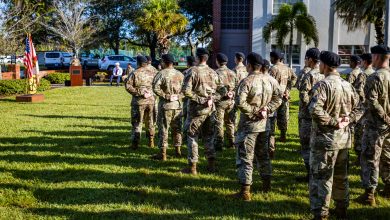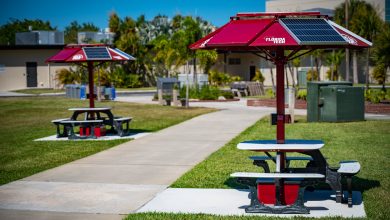Supersonic Unmanned Aerial Vehicle Designed by Students for Flight Test Engineering
The PEREGRINE Project is the first aircraft in a series of student designed unmanned aerial vehicles (UAVs) that aims to improve Florida Institute of Technology’s (FIT) flight test program to allow supersonic speeds.
The most common flight test engineering research is either performed through simulations or on piloted aircraft. With PEREGRINE, researchers are able to conduct testing aboard a remotely operated vehicle that is not only more cost effective than piloting an aircraft, but it also presents variables that can’t be replicated in a simulation environment.
A team of aerospace engineering majors, including Pulkit Aggarwal, Felix Arias, Nicholas Assante, Michael Gondek, Nathaniel Hubenthal, Cameron Hume, Steven Johnson, Nicholas Joy, Kierstyn Reed, Kolen Roberts, Marvin Toepfer, Larissa Winstead, Patrick Wright created PEREGRINE as part of their student design project.
The team divided the project up into four subsystems, including:
- Aerodynamics designed a platform that is stable at both high and low speeds, while maximizing the aerodynamic efficiency at higher velocities. Low fidelity software was utilized during initial design which progressed to the use of computational fluid dynamics software and wind tunnel testing.
- Avionics designed and implemented flight control electronics for the aircraft to ensure the vehicle was capable of maneuvering throughout the full flight envelope.
- Propulsion implemented two JFV-100 miniature turbojet engines and designed and tested its fuel system.
- Structures designed an airframe that is both lightweight and flight worthy, given the predicted flight conditions.
Learn more about PEREGRINE





